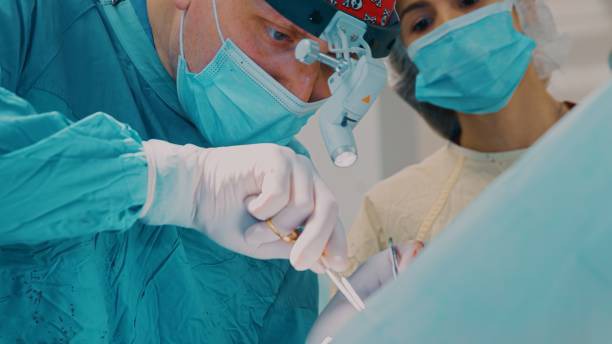Oral surgery can feel daunting, but understanding it better can alleviate a lot of your worries. We’ve gathered insights from experts to address some of the most common concerns. So, grab a comfy seat and let’s explore this comprehensive guide.
Understanding Oral Surgery: What Is It?
Before we get into the specifics, let’s break down what oral surgery actually involves. Simply put, oral surgery refers to any surgical procedure performed in or around your mouth and jaw. It covers everything from tooth extractions to corrective jaw surgery.
Why Do People Need Oral Surgery?
There are many reasons why someone might need oral surgery. Here are a few common scenarios:
-
Tooth Extraction: Removing damaged or decayed teeth.
-
Dental Implants: Replacing missing teeth with artificial ones.
-
Jaw Corrections: Aligning jaws for better function and appearance.
-
Biopsy Procedures: Taking tissue samples to check for oral diseases.
Won’t It Hurt?
Many people are concerned about pain. The good news is that thanks to modern anesthesia, most oral surgeries are performed with minimal discomfort. Anesthesia options range from local anesthetics to general anesthesia, depending on the complexity of the surgery and your comfort level.
Pre-Surgery Consultation: What to Expect
Before your surgery day, you’ll have a consultation with your oral surgeon. During this time, you’ll discuss:
-
Medical History: Be prepared to share your full medical history, including current medications.
-
Treatment Plan: The surgeon will explain the planned procedure and answer any questions.
-
Recovery Process: You’ll learn what to expect as you heal.
How Much Is This Going to Cost?
Cost is always a major consideration. Factors influencing the price of your surgery include the type of procedure, anesthesia used, and geographical location. Insurance often covers part of the cost, but it’s essential to verify this with your provider.
Post-Surgery Recovery: What You Should Know
Once your surgery is complete, understanding the recovery process is crucial for a smooth healing experience. Here’s a quick guide:
-
Rest: Give yourself plenty of time to recover by taking it easy.
-
Diet: Stick to soft foods initially, gradually reintroducing solid foods as you heal.
-
Hygiene: Follow instructions for oral hygiene to prevent infection.
Common Concerns During Recovery
It’s normal to experience some swelling and discomfort after oral surgery. Over-the-counter pain relievers and ice packs can help manage these symptoms. If pain or swelling persists, contact your surgeon.
Do I Really Need Dental Implants?
If you’re missing teeth, dental implants might be recommended. Not only do they look and feel like natural teeth, but they also function that way. They’re a long-term solution compared to dentures or bridges. Wondering how much are dental implants? The cost varies based on location and complexity, but they can be a worthwhile investment in your oral health.
Choosing the Right Surgeon
Selecting a qualified oral surgeon is critical. Look for:
-
Credentials: Ensure they’re board-certified and have the proper training.
-
Experience: Ask how many similar procedures they’ve performed.
-
Reviews: Check patient reviews to gauge their reputation.
Is It the Right Time for Oral Surgery?
Timing matters. Your oral surgeon can help determine the best time for surgery, considering your health, schedule, and aftercare needs. If you’re feeling anxious, remember that surgery can often prevent more serious problems down the road.
What About Everyday Life Post-Surgery?
Integrating back into daily life after surgery can bring its own challenges. Here’s what experts suggest:
-
Plan Ahead: Arrange for help with household tasks.
-
Listen to Your Body: Rest when you need to, and don’t rush your recovery.
-
Follow-up: Attend all follow-up appointments to ensure everything is healing well.
Long-Term Benefits of Oral Surgery
Yes, surgery is an investment of time and money, but it comes with long-term benefits. Properly aligned teeth and jaws improve not only your appearance but also your oral health, making it easier to eat, speak, and maintain hygiene.
Managing Anxiety About Oral Surgery
It’s completely normal to feel anxious about an upcoming oral surgery. Here are some strategies to help ease your mind:
-
Educate Yourself: Learning about the procedure can demystify the process and reduce fear. Your surgeon can provide resources or answer any lingering questions.
-
Breathing Techniques: Practice deep breathing exercises to calm your nerves. Techniques such as diaphragmatic breathing can be beneficial.
-
Visualization and Mindfulness: Visualize a successful surgery and recovery. Mindfulness meditation can also help you stay present and reduce anxiety.
-
Support System: Talk to friends or family who have undergone similar procedures. Their experiences can provide reassurance.
-
Professional Help: If anxiety feels overwhelming, consider speaking with a mental health professional for guidance and support strategies.
Remember, your surgical team is there to support you every step of the way. Don’t hesitate to communicate your concerns at any point in the process. By being proactive and engaging with experts in clinics such as BIOS, you’ll be on your way to a healthier, happier smile.
Final Thoughts and Encouragement
Oral surgery can seem intimidating, but with the right information and support, you can feel more at ease. Understanding the ins and outs of oral surgery can empower you to take this next step confidently. So, whether you’re preparing for a simple extraction or something more complex, know that you’re not alone. There’s a whole team of experts ready to guide you every step of the way. Remember, the key to overcoming fear is knowledge.

